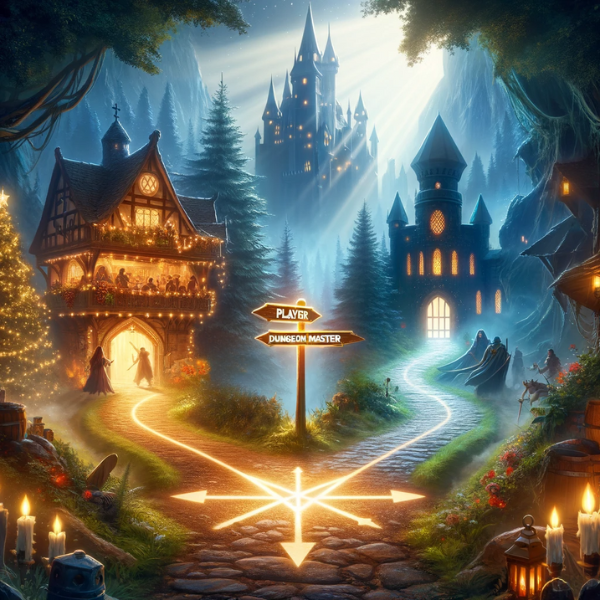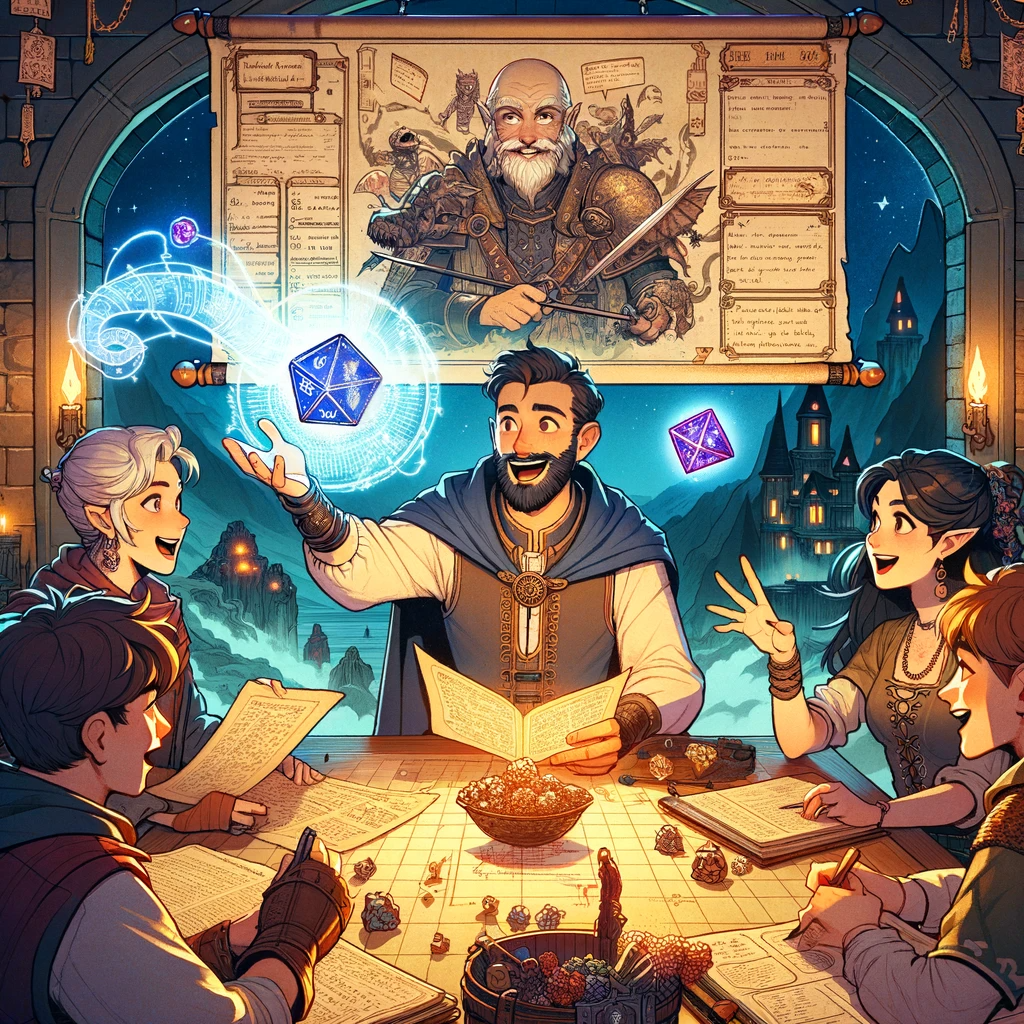The Ultimate Guide to Dungeons & Dragons: Part 5 - Should I Be a DM or a Player?
- Posted on
- By Tristan Donaldson
- Posted in 5E, D&D, Dungeon Master, Dungeons and Dragons
- 0

Should you be a player or a Dungeon Master? Tough choice! Find out which role is right for you.
D&D is an exciting new hobby for anyone to learn, but deciding how to play the game can be a big decision. The game is by its nature asymmetrical, with the players and the Dungeon Master having vastly different roles in the game. For a beginner player, it may not be an obvious choice as to which one is right for you to start.
So before you make any decisions, ask yourself this question:
Do you like planning parties more, or going to them?

Certainly, going to the party requires less preparation. You just need to arrive on time, usually bring just a few things, and then have fun with your friends. Your duty to the host is to have a good time and thank them for inviting you at the end.
That’s the player’s job too. You come to the game with dice, the player’s handbook, and a character sheet, and play.
A good player is like a good party guest; having fun should be fun for everyone. Think about someone you know who’s the life of the party. You want to be around them, because that means that you’ll have a good time too. They compliment easily, they make people laugh, they listen actively when others are talking. Everyone feels like the best version of themselves whenever this person is around them, especially the host. They don’t make everything about them; they make everything about the moment.
As a good player, it’s your job to make sure that you and the other players engage honestly with the DM’s story. Remember that the DM has worked hard to put the game together so that you all can have fun!
So have fun!
Being a good player means asking genuine questions about the scene. It means working together with your fellow players to solve the DM’s puzzle, and listening while they put out ideas or when you’re not speaking. It means jumping in the spotlight when it’s your time to shine, then passing it over when it’s someone else’s turn.
These small habits make the DM feel like the effort that they put into the adventure is appreciated. It shows them that you not only genuinely care about what’s going on in the story, but also that you want to find out more. These small habits also show your fellow players that you enjoy playing with them, and value their ideas.

After all, D&D is a collaborative game, and being a player means being a team player. There are times when you’ll need to hold back while someone else is speaking, but there are also times when your party will want you to show off, do something cool, and save the day.
If you do this well, everyone at the table will love having you there. After all, the life of the party always gets invited back, and gets invited to other parties, don’t they? Likewise, being fun and generous means that your DM will look forward to having you at the table, while other DMs will want to have you in their campaign.
This is the job of any player, to say yes to the adventures and go along with the DM’s plans, while also making sure the other players play nicely together.
On the other hand, planning a party definitely takes more effort, but is potentially much more rewarding. You need to plan the refreshments, the entertainment, the venue, the activities, and a million other things so that everything goes smoothly. Usually, you have to be the host too, making sure everyone’s drinks are full and saying “hello” to every guest.
By the end of the night, you’re probably going to be exhausted, but somebody needs to do the job if you want a party.
Being a DM is pretty much the same. Yes, you’re the one who creates the adventure, the world, the characters, and all the encounters, but more importantly, you need to make sure that all of your players have a good time. You’ll need to craft scenarios where each one of them can shine, and build the game around what they find fun.
The success of the game is your responsibility.
If people have fun at your party, then you’ll be known as the person who throws great parties, and they’ll keep coming back. If people have fun at your games, you’ll be known as the DM who runs great games, and they’ll be back to play next week.
Sure, it’s more work than just playing the game, but if you do it well, you become a legend among your friends and other players.
People will talk about your games and the amazing times they had in them. You may have heard the names of Matt Mercer, Aabria Iyengar, or Brennan Lee Mulligan. These are the most famous celebrity DMs, and they’ve gained that reputation for running incredible games. The players might have had amazing moments in those games, but the DM was the one who brought them all together.
A great story will long outlive any campaign. What you’re creating as a DM is memories, epic, hilarious, epically hilarious moments that your players will remember for the rest of their lives. You may not remember every single thing that happens, but you will remember those amazing moments and that you and your friends had fun.
That’s what D&D is all about.
So, consider these words before you decide how you want to play the game. Each one requires something different, but works towards the common goal of creating a fun campaign. Remember though, you can easily switch at any time, so there’s no stress.
DMing proving to be too much work? You can always end a campaign, start over, and let someone else give it a try? Getting bored of playing? Why not give DMing a spin?
Really though, you won’t fully know until you start playing!

Comments
Be the first to comment...